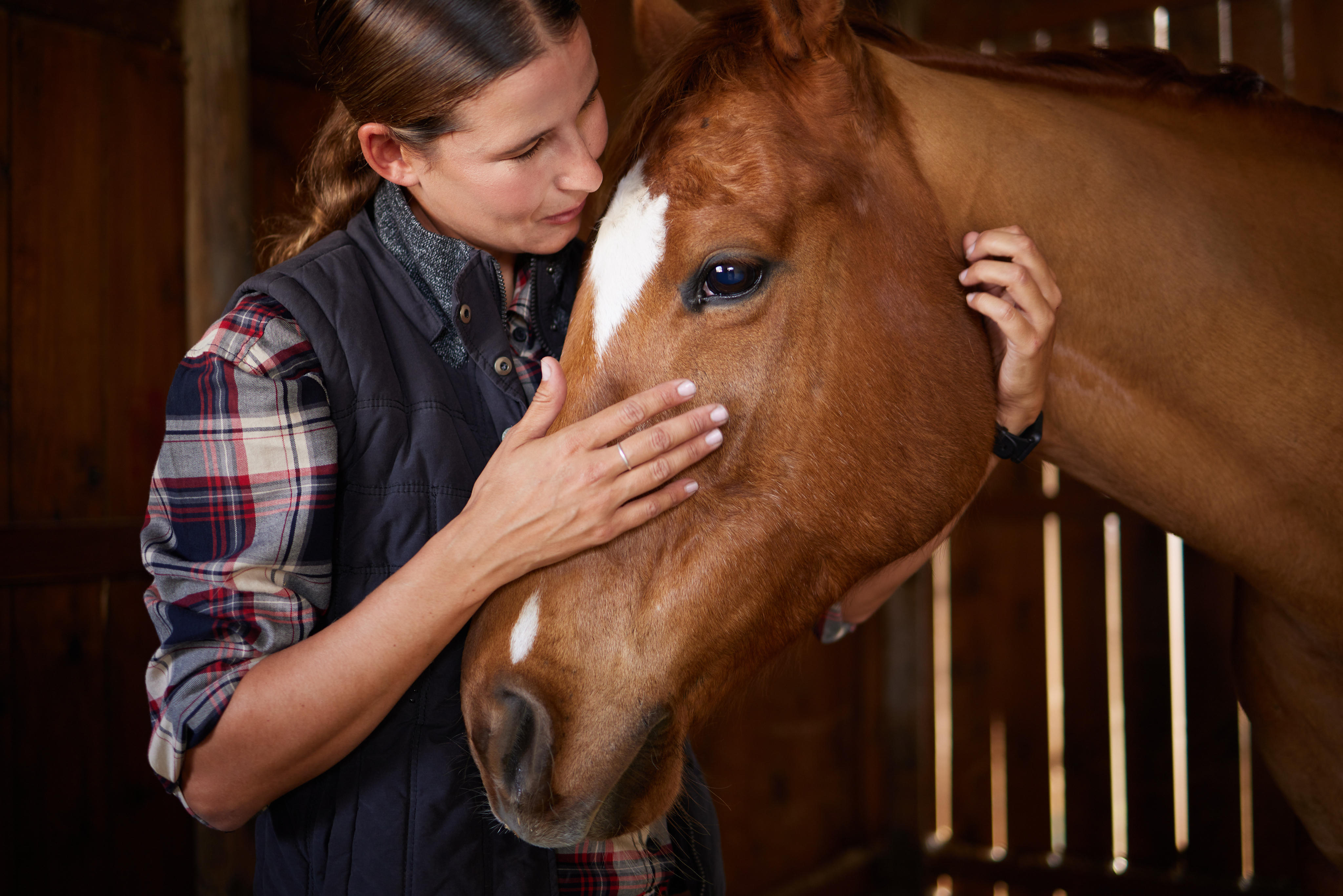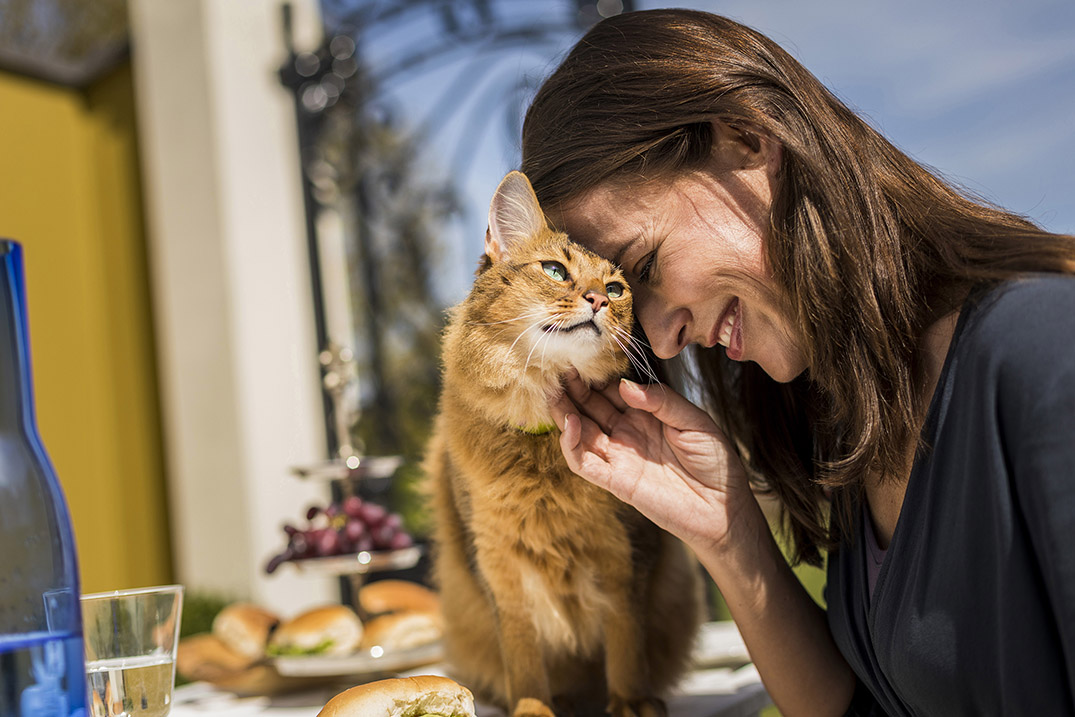Deworming The Foal
Young foals are generally more susceptible to parasites than adult horses. Exposure begins early. The major gastrointestinal parasite of concern in the foal is ascarids. Another parasite, Strongyloides westeri, can be passed from dam to foal in the milk. Any deworming program should include dewormers that are effective against mature parasites and migrating or encysted larvae.
Consult your veterinarian for the most effective deworming schedule and product for your horses and region.
While any worm can affect your foal, the most significant parasites are ascarids, also known as roundworms. Ascarids prey on the naïve immune systems of horses less than 18 months old and can cause depression, respiratory disease, stunted growth, diarrhea, constipation and potentially fatal colic.
Immature ascarid larvae migrate through the foal’s liver and lungs. During their migration through the lungs, immature ascarid larvae cause inflammation resulting in low-grade fever, nasal discharge and cough. Persistent lung inflammation may make your foal more susceptible to other bacterial respiratory diseases. Following their several-week migration through the lungs, ascarid larvae are coughed up, swallowed and passed into the small intestines where they complete their development and begin laying eggs.
Heavy burdens of developing larvae and adult roundworms in the foal’s small intestine can cause weight loss, poor condition, loss of energy, pot belly and a life-threatening impaction that can result in fatal bowel rupture. As the horse matures into his second year of life, he develops a heightened immune response to ascarids, and the threat greatly diminishes.
To ensure your foal stays healthy, the best procedure is to develop a regular parasite control program that never allows a large population of ascarids to become established within your foal and jeopardize his health while also preventing large numbers of adult worms from shedding eggs that will contaminate your pasture for years to come.
Foal Deworming Principles
- Consult your veterinarian to develop a strategic deworming program designed for your farm and region
- Focus on ascarid control during the first 6 months (note: ivermectin resistance among ascarids is widespread; fenbendazole and pyrantel are preferred anthelmintics)
- Treat all youngsters less than 2 years of age as high shedders
- Include at least one larvicidal treatment, such as Panacur® (fenbendazole) POWERPAC, for small strongyles and ascarids during the foal’s first year
- Use bi-annual fecal exams in weanlings and yearlings to evaluate efficacy of parasite control program
- Use a scale or weight tape to estimate foal’s weight to ensure accurate dosing
- Pick up all manure frequently and dispose of used bedding
- Ascarid eggs are hardy and can live and remain infective for years in stalls, paddocks and pastures increasing potential for spreading ascarid infection between horses and even re-infecting the original host. The high temperatures generated by composting can kill ascarid eggs
- Older foals on pasture should have creep feed and hay fed in raised containers in an attempt to decrease the number of parasite eggs ingested when horses graze directly off the ground
Recommended deworming schedule for foals
Discuss this sample deworming schedule with your veterinarian in case you need to adjust based on your location, your farm, your foal’s parasite burden and the dewormers that are most effective based on fecal examinations.1
| Age | Recommendation |
|---|---|
| 2-4 months | Treat for ascarids with PANACUR® (fenbendazole) foal dose (4.6 mg/lb larvicidal dose), oxibendazole or pyrantel |
| 4-6 months | Treat for ascarids and small strongyles with fenbendazole (4.6 mg/lb larvicidal dose), pyrantel or ivermectin |
| 8-10 months | Treat for ascarids, small and large strongyles and pinworms (options include fenbendazole larvicidal dose, ivermectin, moxidectin or pyrantel). Treat for tapeworms (options are praziquantel or double-dose pyrantel). Treat for bots (options are ivermectin or moxidectin). |
| 10-12 months | Treat for ascarids, small and large strongyles and pinworms (options include fenbendazole larvicidal dose, ivermectin, moxidectin or pyrantel). Treat for tapeworms (options are praziquantel or double-dose pyrantel). Treat for bots (options are ivermectin or moxidectin). |
Consult your veterinarian for assistance in the diagnosis, treatment and control of parasitism.
References
- Adapted from AAEP parasite guidelines.




 Go To United States
Go To United States Algeria
Algeria Argentina
Argentina Australia
Australia Austria
Austria Bahrain
Bahrain Belgium (Dutch)
Belgium (Dutch) Brazil
Brazil Canada (English)
Canada (English) Chile
Chile Colombia
Colombia Croatia
Croatia Czech Republic
Czech Republic Denmark
Denmark Ecuador
Ecuador Egypt
Egypt Finland
Finland France
France Germany
Germany Greece
Greece Hungary
Hungary India
India Indonesia
Indonesia Iraq
Iraq Ireland
Ireland Israel
Israel Italy
Italy Japan
Japan Jordan
Jordan Kuwait
Kuwait Lebanon
Lebanon Malaysia
Malaysia Mexico
Mexico Morocco
Morocco Netherlands
Netherlands New Zealand
New Zealand Norway
Norway Oman
Oman Panama
Panama Peru
Peru Philippines
Philippines Poland
Poland Portugal
Portugal Qatar
Qatar Romania
Romania Russian Federation
Russian Federation Saudi Arabia
Saudi Arabia South Africa
South Africa South Korea
South Korea Spain
Spain Sweden
Sweden Switzerland (French)
Switzerland (French) Taiwan
Taiwan Thailand
Thailand Tunisia
Tunisia Turkey
Turkey Ukraine
Ukraine United Arab Emirates
United Arab Emirates United Kingdom
United Kingdom Uruguay
Uruguay Yemen
Yemen Global
Global